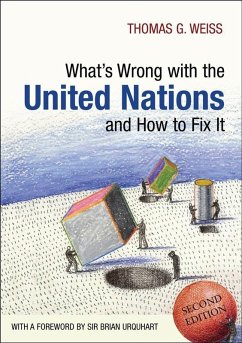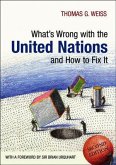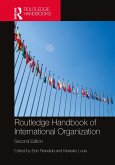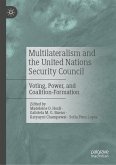Six decades after its establishment, the United Nations and itssystem of related agencies and programs are perpetually in crisis.While the twentieth-century's world wars gave rise toground-breaking efforts at international organization in 1919 and1945, today's UN is ill-equipped to deal with contemporarychallenges to world order. Neither the end of the Cold War nor theaftermath of 9/11 has led to the "next generation" ofmultilateral institutions. But what exactly is wrong with the UN, and how can we fix it? Is itpossible to retrofit the world body? In his succinct andhard-hitting analysis, Thomas G. Weiss takes a diagnose-and-cureapproach to the world organization's inherent difficulties.In the first half of the book, he considers: the problems ofinternational leadership and decision making in a world ofself-interested states; the diplomatic difficulties caused by theartificial divisions between the industrialized North and theglobal South; the structural problems of managing the UN'smany overlapping jurisdictions, agencies, and bodies; and thechallenges of bureaucracy and leadership. The second half shows howto mitigate these maladies and points the way to a world in whichthe UN's institutional ills might be "cured." Hisremedies are not based on pious hopes of a miracle cure for the UN,but rather on specific and encouraging examples that could bereplicated. With considered optimism and in contrast to receivedwisdom, Weiss contends that substantial change in intergovernmentalinstitutions is plausible and possible. The new and expanded second edition of this well-regarded andindispensable book will continue to spark debate amongst students,scholars, and policymakers concerned with international politics,as well as anyone genuinely interested in the future of the UnitedNations and multilateral cooperation.
Dieser Download kann aus rechtlichen Gründen nur mit Rechnungsadresse in D ausgeliefert werden.









